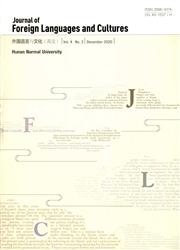Chinese Tradition in the World Literature: Review of Zhang Longxi's A History of Chinese Literature
引用次数: 0
Abstract
This essay reviews Zhang Longxi’s A History of Chinese Literature. The book covers Chinese literature from its very beginning to modern times. It emphasizes texts’ literary and aesthetic qualities when evaluating and historicizing literature. The book demonstrates the importance of canons in literary history, using Chinese tradition as an example. Therefore, it also brings the Chinese tradition into the broader framework of world literature. Reading Zhang’s concise historical overview of Chinese literature, we can better understand the interplay between literary tradition and the individual talent. Zhang Longxi has skillfully combined the writing of a history of literature with literary criticism in this book. Zhang’s successful attempt informs literary scholars of possible paradigms of compiling literary history in a post-cultural-studies theoretical context.世界文学中的中国传统——张隆喜《中国文学史》述评
本文评述了张陇西的《中国文学史》。这本书涵盖了从一开始到现代的中国文学。它在评价和历史化文学时强调文本的文学性和审美性。这本书以中国传统为例,展示了经典在文学史上的重要性。因此,它也将中国传统纳入了世界文学更广阔的框架中。阅读张对中国文学的简明历史概述,我们可以更好地理解文学传统与个人才能之间的相互作用。张陇西在这本书中巧妙地将文学史的写作与文学批评相结合。张的成功尝试为文学学者提供了在后文化研究理论语境下编纂文学史的可能范式。
本文章由计算机程序翻译,如有差异,请以英文原文为准。
求助全文
约1分钟内获得全文
求助全文

 求助内容:
求助内容: 应助结果提醒方式:
应助结果提醒方式:


